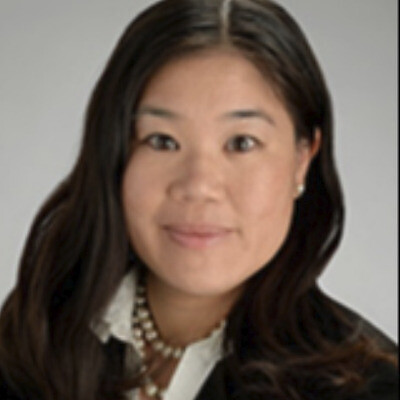
Frances
Yang,
PhD
Evaluator, Kansas 4M Geriatrics Workforce Education Program
University of Kansas Medical Center
Dr. Yang is a gerontologist, epidemiologist, and Research Associate Professor with the KU School of Nursing with expertise examining the measurement of person-centered health outcomes in the presence of comorbid chronic health conditions, race/ethnic/cultural, language, and rural/urban differences. She has served as a HRSA Program Evaluator. With internationally recognized expertise in measurement methodology, she is a past chair of the Psychometrics Special Interest Group of the International Society for the Quality of Life Research. She has published over 60 peer-reviewed articles and a book entitled: "Measurement and the Measurement of Change." Dr. Yang teaches at the University of Kansas (KU) School of Nursing located at the University of Kansas Medical Center, Kansas City, Kansas, USA. Dr. Yang teaches the Introduction to Clinical Epidemiology course (NRSG 811) and Doctorate of Nursing Practice (DNP) Project Evaluation and Dissemination. She also serves as a research mentor for dissertation students enrolled in PhD program at the KU School of Nursing. With training in gerontology and epidemiology, Dr. Yang has big data expertise in using Epic EHR data and Centers for Medicare and Medicaid Services data to mHealth applications for detecting subsequent falls risk, memory aids, and emotional health support using artificial intelligence. Her training in disparities research, psychometrics, psychiatric epidemiology, and public health at Harvard Medical School offers her an interdisciplinary lens by which to collaborate and conduct translational research. Dr. Yang is passionate about using modern measurement theory to examine the properties of patient reported outcomes (PROs) for quality of life in older adults, which includes cognitive and mental health. She has helped examine and develop PROs in the areas of HIV, cardiovascular comorbidities, quality of life, recovery from substance abuse, depression, and cognitive measures.
Presenting at the Nexus Summit:
Background: Like most states, Kansas has struggled to have enough well-trained nurses and nurse aides to staff our long-term care communities and due to a shortage of nursing faculty, Kansas lacks the capacity to educate enough new nurses to meet the demand for care. While we have effective, evidence-based geriatric models of care, we have a know-do gap in which less than 10 percent of older adults are reached who benefit from these models. A new statewide practice-education partnership between long-term care professionals and nurse educators seeks to advance 4Ms care, bridge the know-do gap…
